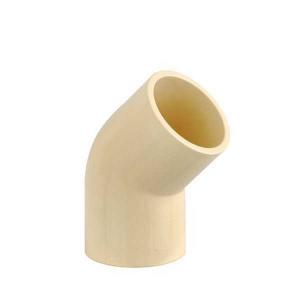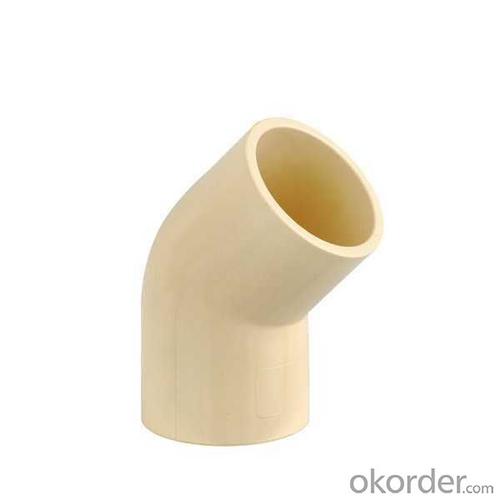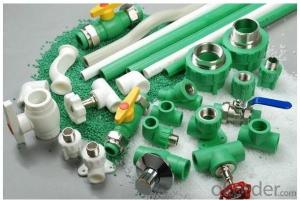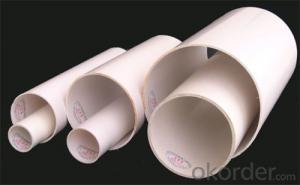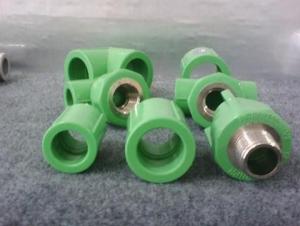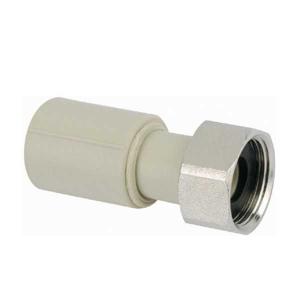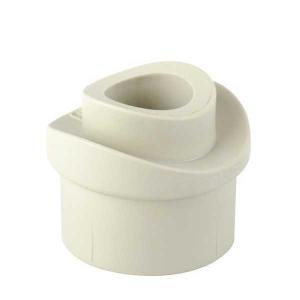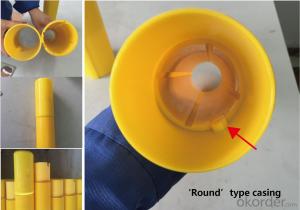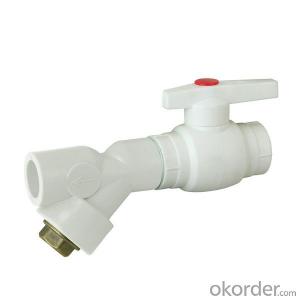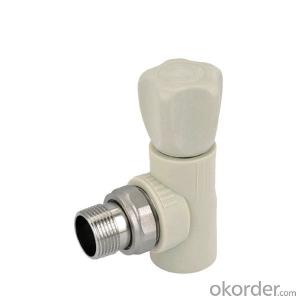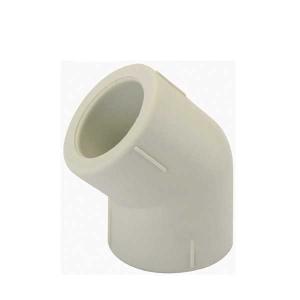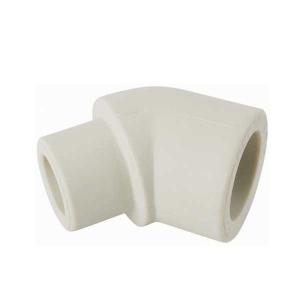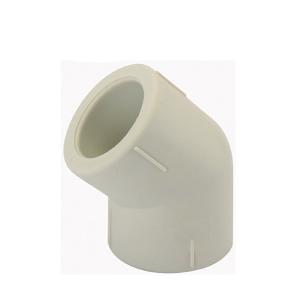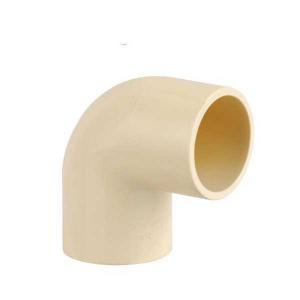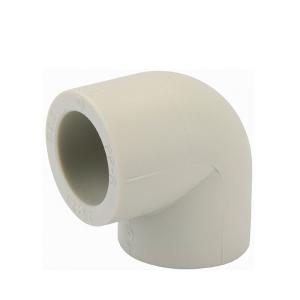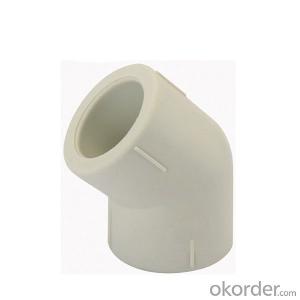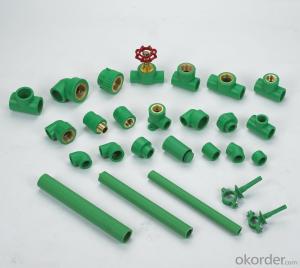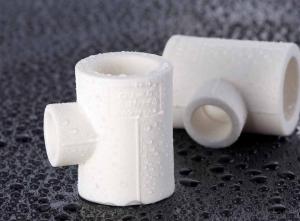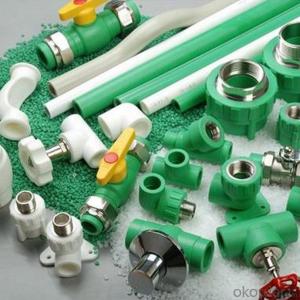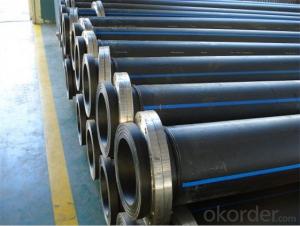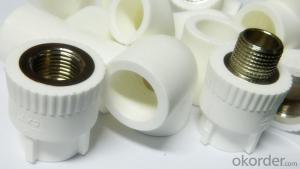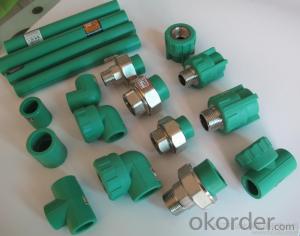High Quality 45 Elbow Metal to Plastic Pipe Fittings
- Loading Port:
- Ningbo
- Payment Terms:
- TT or LC
- Min Order Qty:
- 1000 watt
- Supply Capability:
- 100000 watt/month
OKorder Service Pledge
Quality Product, Order Online Tracking, Timely Delivery
OKorder Financial Service
Credit Rating, Credit Services, Credit Purchasing
You Might Also Like
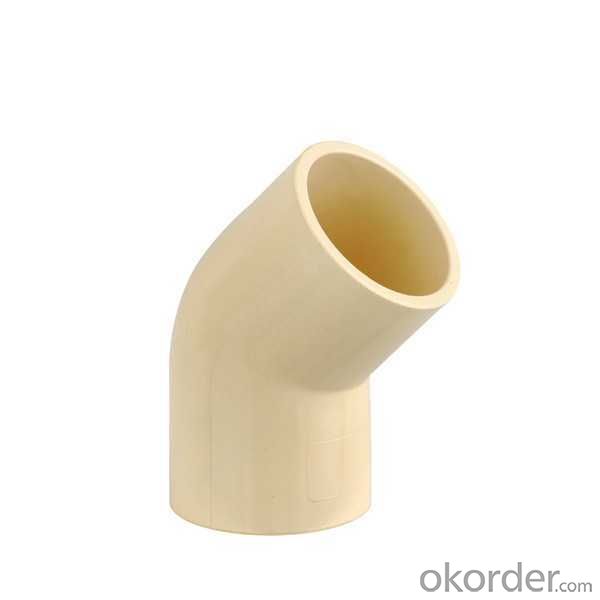 cpvc plastic fittings raw materials from KANEKA japan laser marking high rigidity easy installation corrosion-resistant PN25 ASTM2846 standard size:1/2''--2''
cpvc plastic fittings raw materials from KANEKA japan laser marking high rigidity easy installation corrosion-resistant PN25 ASTM2846 standard size:1/2''--2''
1.Material:Random Polypropylene(Hyosung R200P);
2.ISO9001&ISO14001;
3.Standard:GB/T 18742.3-2002, DIN8077/8078;
4.OEM also ok
- Q: How do you connect plastic pipe fittings to PEX pipes?
- To connect plastic pipe fittings to PEX pipes, you can use push-fit or compression fittings specifically designed for PEX. Push-fit fittings require no tools and are simply inserted into the PEX pipe until they click in place. Compression fittings, on the other hand, involve tightening the nut over the fitting onto the PEX pipe with a wrench to create a secure connection.
- Q: How do you connect plastic pipe fittings to copper pipes?
- To connect plastic pipe fittings to copper pipes, you can use a transition fitting called a push-fit connector. These connectors have a plastic component that fits securely onto the plastic pipe and a brass or copper component that connects to the copper pipe. The connection is made by simply pushing the plastic pipe into the push-fit connector until it locks in place, ensuring a watertight seal.
- Q: Are plastic pipe fittings suitable for use in pharmaceutical manufacturing?
- No, plastic pipe fittings are not suitable for use in pharmaceutical manufacturing.
- Q: Are plastic pipe fittings resistant to water hammer?
- Yes, plastic pipe fittings are generally resistant to water hammer. Due to their flexibility and ability to absorb pressure spikes, plastic fittings can help minimize the impact of water hammer in plumbing systems. However, it is important to choose fittings that are specifically designed to handle water hammer and follow proper installation guidelines to ensure optimal performance.
- Q: Are plastic pipe fittings suitable for pharmaceutical manufacturing?
- Yes, plastic pipe fittings can be suitable for pharmaceutical manufacturing. They offer various advantages such as chemical resistance, low cost, easy installation, and flexibility. However, it is essential to ensure that the chosen plastic material and manufacturing processes comply with the industry's strict quality and safety standards to prevent any potential contamination risks.
- Q: How can the PPR pipe be connected with the metal tube?
- The transition piece is a combination of plastic and metal, and the two materials are processed by injection molding process, and the anti leakage sealing is realized through the internal structure without adding other adhesive materials.
- Q: Are plastic pipe fittings resistant to hydrocarbons and oils?
- Yes, plastic pipe fittings are generally resistant to hydrocarbons and oils.
- Q: How do you connect plastic pipe fittings together?
- To connect plastic pipe fittings together, you typically use solvent cement. This adhesive is applied to the outside of the pipe and the inside of the fitting, and then the two pieces are pressed firmly together. The solvent cement creates a strong bond that securely holds the fittings in place.
- Q: Can plastic pipe fittings be used in water fountain systems?
- Yes, plastic pipe fittings can be used in water fountain systems. They are commonly used due to their durability, resistance to corrosion, and ease of installation. However, it is important to ensure that the plastic used is suitable for contact with water and meets any necessary regulations or standards.
- Q: Can plastic pipe fittings be used for sewer systems?
- Yes, plastic pipe fittings can be used for sewer systems. Plastic materials such as PVC (polyvinyl chloride) and ABS (acrylonitrile butadiene styrene) are commonly used in sewer systems due to their durability, corrosion resistance, and affordability. Plastic pipe fittings are designed to connect and secure plastic pipes, offering a reliable and long-lasting solution for sewage transportation.
Send your message to us
High Quality 45 Elbow Metal to Plastic Pipe Fittings
- Loading Port:
- Ningbo
- Payment Terms:
- TT or LC
- Min Order Qty:
- 1000 watt
- Supply Capability:
- 100000 watt/month
OKorder Service Pledge
Quality Product, Order Online Tracking, Timely Delivery
OKorder Financial Service
Credit Rating, Credit Services, Credit Purchasing
Similar products
Hot products
Hot Searches
Related keywords
